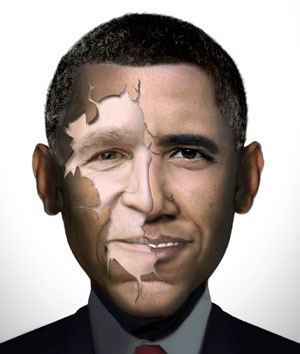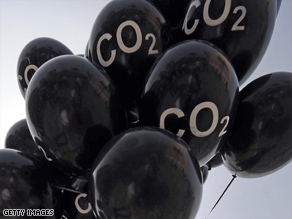Venezuela: Workers’ control and the contradictions of the Bolivarian process

Gustavo Martínez interviewed by Susan Spronk and Jeffery R. Webber
June 21, 2010 – The Bullet – On June 10, 2010, we caught up with Gustavo Martinez, a union leader in the worker-controlled, nationalised coffee company, Fama de América, in Caracas, Venezuela. The company has 350 workers at the national level, with two separate plants – one in Caracas and one in Valencia. We sat down with Martínez to discuss the centrality of workers’ control in the ongoing struggle to transition toward socialism and some of the most pressing contradictions of the Bolivarian process in Venezuela today.
* * *
To start off, can you tell us your name, how long you've worked in this coffee company, your job in the company, and your role in the union?
Eric Toussaint: Venezuela's Bolivarian revolution at the crossroads?
By Eric Toussaint
[See parts 2 , 3 and 4 below.]
South Africa: FIFA, not migrants, are the real tsotsis

By Patrick Bond, Durban
June 25, 2010 -- South Africa's soccer-loving critics have long predicted the problems now growing worse here because of its World Cup hosting duties:
- loss of large chunks of government’s sovereignty to the world soccer body FIFA;
- rapidly worsening income inequality;
- future economic calamities as debt payments come due;
- dramatic increases in greenhouse gas emissions (more than twice Germany’s in 2006); and
- humiliation and despondency as the country’s soccer team Bafana Bafana (ranked #90 going into the games) became the first host to expire before the competition’s second round.
Soon, it seems, we may also add to this list a problem that terrifies progressives here and everywhere: another dose of xenophobia from both state and society.
The crucial question in coming weeks is whether, instead of offering some kind of resistance from below, as exemplified by the Durban Social Forum network’s 1000-strong rally against FIFA on June 16 at City Hall, Durban, will society’s sore losers adopt right-wing populist sentiments, and frame the foreigner?
Asian left: `Lift the siege on Gaza! Support boycott, divestment and sanctions on apartheid Israel'
Statement by Asian left organisations
[To add your organisation’s endorsement, please email: international@socialist-alliance.org.]
June 25, 2010 -- As Israel stands increasingly isolated following its manufactured confrontation on May 31, 2010, with the peace flotilla in which nine Turkish activists on the Mavi Marmara were murdered, now is the time to increase the pressure on Israel to lift the siege of Gaza.
Israel’s criminal blockade of Gaza is aimed to collectively punish 1.5 million Gazans for their choice of government.
The attack on the flotilla was aimed at demoralising Palestinians and their supporters. But, as we've seen from the global protests – particularly in Turkey and the Arab world – it has backfired on the Netanyahu government. Turkey, once a close political and military ally, has now distanced itself from Israel and supports attempts to break the Gaza blockade.

Skulls of victims of one of the massacres during the 1994 Rwandan genocide are displayed at the Genocide Memorial Site church of Ntarama in Nyamata, Rwanda.
Tariq Ali: Afghanistan -- `Obama’s war'

By Tariq Ali
Football, sport and capitalism: Terry Eagleton 1 -- Dave Zirin 1?

Terry Eagleton: `Football -- a dear friend to capitalism'
By Terry Eagleton
June 15, 2010 -- The Guardian (UK) -- If the [new British] government is bad news for those seeking radical change, the soccer World Cup is even worse. It reminds us of what is still likely to hold back such change long after the coalition is dead. If every rightwing thinktank came up with a scheme to distract the populace from political injustice and compensate them for lives of hard labour, the solution in each case would be the same: football. No finer way of resolving the problems of capitalism has been dreamed up, bar socialism. And in the tussle between them, football is several light years ahead.
Class and politics in Thailand

World People's Conference on Climate Change: Some critical comments on the People's Agreement

[For full coverage of the World People's Conference on Climate Change, including the full text of the documents, click HERE.]
By Daniel Tanuro and Sandra Invernizzi
June 2010 -- International Viewpoint -- The World People's Conference on Climate Change and the Rights of Mother Earth, which met in Cochabamba (Bolivia) from April 20-22, 2010, at the invitation of Bolivia's President Evo Morales, was an enormous success. Thirty-thousand participants discussed for several days the various facets of the climate crisis and adopted a series of very interesting documents, from a resolutely anti-capitalist standpoint.
Comparision of the Cochabamba People’s Agreement and the Copenhagen Accord
The People's Agreement stems from an integral vision of climate change, incorporating the issue of the structural causes of the climate crisis, the rupture of harmony with nature, the need to recognise the rights of Mother Earth in order to guarantee human rights, the importance of creating a Tribunal of Climate and Environmental Justice, the development of global democracy so that the people can decide on this issue affecting and the planet and all of humanity.
On the other hand, the Copenhagen Accord represents a step backward with relation to the Kyoto Protocol by proposing a methodology of voluntary commitments for the industrialised countries that are principally responsible for climate change.
United States: Victory as protesters and union block Israeli ship unloading at Oakland Port
Video by Tom Vee TV. More video below.
[For more information about trade union solidarity with Palestine, click HERE.]
June 20, 2010 -- ANSWER -- In a historic action and unprecedented action today, more 800 worker and community activists blocked the gates of the Oakland docks in the early morning hours, prompting longshore workers to refuse to cross the picketlines where they were scheduled to unload an Israeli ship.

By Dave Holmes
Despite the apparently secular nature of so much of modern life, religion is a long way from being a spent force. For revolutionary socialists aiming to mobilise the masses for a fundamental transformation of society, religion is a question which cannot be ignored.
1. While each country has its specific situation, in the West it is undeniable that the traditional religions are considerably diminished compared to even a few decades ago, with church attendances down and religious identification increasingly nominal for wide layers of the population. Moreover, the churches are being shaken by multiple and ongoing controversies and crises — over the role of women and gays, especially as priests; over revelations of past and present sexual abuse of women and children in their institutions; over financial scandals; in the case of the Roman Catholic Church, over damaging exposures of leading clergy flouting their own code of celibacy; over clashes between their conservative and more liberal wings; and over their increased integration into the activities of the state through government funding for charitable and welfare work.